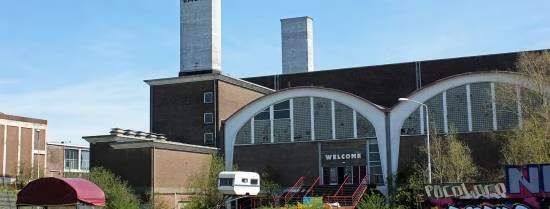What is it that characterizes creative and innovative cultural clusters? Is it primarily the creative artist or producer that breathes life into a cluster for arts, design, games or audiovisual production. What sorts of mechanisms allow creative individuals to best profit from and sustain their creativity and innovation? This project aims to answer such questions by looking at innovative creative businesses as well as the enabling spaces and people – the intermediaries – that build the infrastructure underpinning especially innovative places.
Comparative research on small scale clusters
The research project Cultures of Innovation in the Creative Industries focuses on practices of innovation in Dutch creative industries. The main research question of this project is how cultures of innovation develop in co-located creative industries. The proposed research thus focuses on 1) the development of and interrelationships between companies, markets, networks and the places where they are located (residencies) and 2) the effects of their co-location on both the companies themselves, their competitiveness, innovative capacities, collaborations, but also on the environment in which they are located. We hypothesize that physical proximity at the micro level facilitates but not necessarily generates face-to-face contacts, social networks, firm interaction and tradable and untradable transactions. These in turn might stimulate competitiveness and innovation. Our research aims to unveil which cultural, institutional and functional variables add value to small scale creative clusters.
The project uses an innovative mixed approach of both extensive quantitative, and intensive qualitative information. The extensive quantitative data will provide us with rich, representative and comparative knowledge on the conduct and performance of creative businesses in the selected locations across the Netherlands. However, by adding interview-based qualitative data, we may be able to unveil hidden practices of innovation and creativity, that have remained concealed in previous research into the creative industries. The data collection is guaranteed by our partners, 9 creative residencies across the Netherlands. The project is a unique partnership between Erasmus University Rotterdam/ERMeCC and DCR. DCR is an umbrella organisation of 16 creative residencies which locate some 2000 creative companies, ranging from dance companies to app-developers. DCR and the companies they represent will facilitate the data collection essential to this project.
Description
The main research question of the CICI project is how cultures of innovation develop in co-located creative industries. The project focuses on:
1. the development of and interrelationships between companies, markets, networks and the places where they are located (creative business centres)
2. the effects of their co-location on both the companies themselves, their competitiveness, innovative capacities, and collaborations.
Our hypothesis is that physical proximity at the micro level facilitates but not necessarily generates face-to-face contacts, social networks, firm interaction and tradable and untradeable transactions. These, in turn, can stimulate competitiveness and innovation. This research aims to unveil which cultural, institutional and functional variables add value to small-scale creative clusters.
We will use an innovative mixed approach of both extensive quantitative and intensive qualitative information. The extensive quantitative data will provide us with rich, representative and comparative knowledge on the conduct and performance of creative businesses in the selected creative business centres across the Netherlands. By adding interview-based qualitative data, we hope to be able to unveil hidden practices of innovation and creativity, which have remained concealed in previous research into the creative industries. The data collection is guaranteed by our partners: 9 creative business centres across the Netherlands.
The project runs from November 2013 to April 2018, and is a unique partnership between Erasmus University Rotterdam/ERMeCC and DCR. DCR is an umbrella organisation of 30 creative business centres, which locate some 2000 creative companies, ranging from dance companies to app-developers. DCR and the companies they represent will facilitate the data collection essential to this project.
Research aim
Our research aims at furthering our understanding of practices of innovation as they are currently taking place in the creative industries. Understanding how innovation works, is an important prerequisite in developing instruments in order to make the Creative industries more innovative and competitive. Our research project aims at precisely that, as well as looking at actual intervention policies and the ways in which they impact the everyday working environment and practice of creative business.
Research team
External team members
Pawan Bhansing, Researcher
This project is funded by NWO.
Funding
For more information about the funding, please see the NWO website.
Partners
Participating partners in the Cultures of Innovation in the Creative Industries project:
| Leo van Loon | Director of Creative Factory, Rotterdam and Chair of Dutch Creative Residency Network |
Geert-Jan van den Goor | Coordinator of Cultuurspinnerij de Vasim, Nijmegen |
Victor Wijnen | Director of Dutch Game Garden, Utrecht |
A. Lesuis | Location Manager of Vestia Den Haag Zuid Oost / Bink 36 |
Willie de Groot | Director of Trudo BV/Strijp-S, Eindhoven |
Arno Boon | Chair of BOEi/ Hazemeijer |
Maarten Meurkens | Chair of Klein Haarlem, Haarlem |
M.R. van Dijk | Director of Riverside Lofts, Honigfabriek, Koog a/d Zaan |
M.C. Bolhaar | Director of BIM-De Gruyter Fabriek, Den Bosch |



